How you can support the foundation's important work
How you can support the foundation's important workThinking of donating? We are all here to support you.
There are many ways you can support our work, but what we ensure with any donation is that you will be well-informed about where your donations are going. Your donations support the activities of the Foundation such as Student Scholarships and the annual Foundation Grant.
How to donate?
- Commit to your values! Simply make your donations using the button above.
- Have questions? Interested in named giving opportunities? Our board’s members are very open to discuss any questions or help you see where your donations will go. Email us here and we will contact you.
Aaron S. Luoma Fund for Global Equity
Aaron S. Luoma Fund for Global EquityAaron S. Luoma Fund for Global Equity Mission
The Aaron S. Luoma Fund aims to advance global health, reduce global disparities, and promote global equity.
This fund is intended to support the application of CBS principles by individuals or organizations operating in or residing in low, low-middle and upper middle income countries.
Possible uses of this fund include (amongst others):
- scholarships for individuals to obtain CBS-related training (such through attending the ACBS annual conference)
- support of scientific research projects or research capacity building by investigators residing in low and low-middle income countries
- support for organizations or individuals located in low, low-middle and upper middle income countries to enable public health projects informed by CBS principles
About Aaron
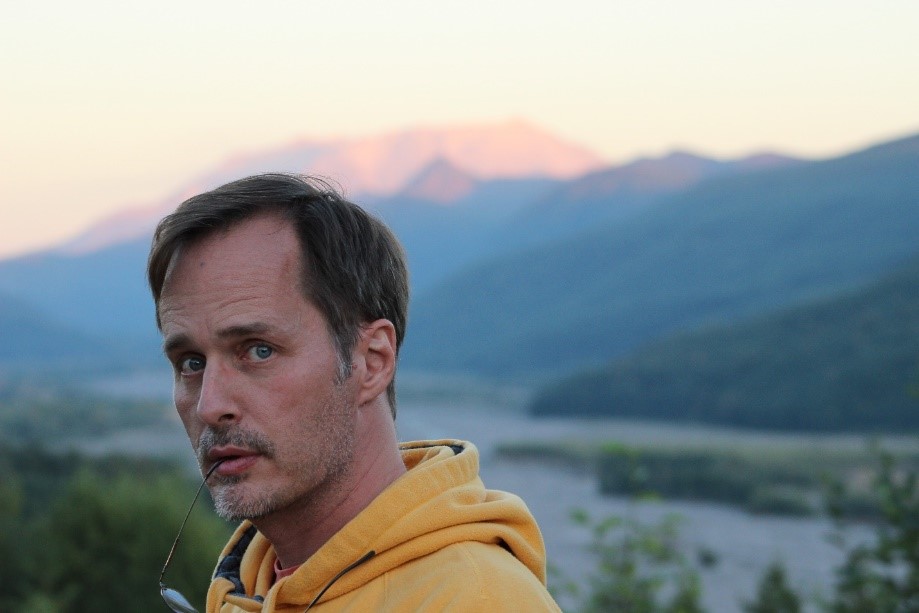
Just because a person has died, their story doesn’t need to end. Aaron was one of the many people who walk this world as quiet revolutionaries, building bridges of love and compassion. He called himself a “citizen of the world” and identified with a global community above his identity as part of a particular nation, place, or group. Throughout his life, he worked to transcend geography, political borders, ethnicity, race, and other aspects of group identity. This fund is intended to continue that legacy.
2023 ACBS Foundation Grant - Aaron S. Luoma Fund for Global Equity
2023 ACBS Foundation Grant - Aaron S. Luoma Fund for Global Equity2023 Grant Recipient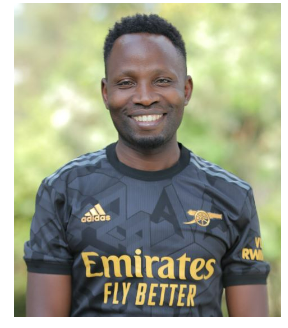

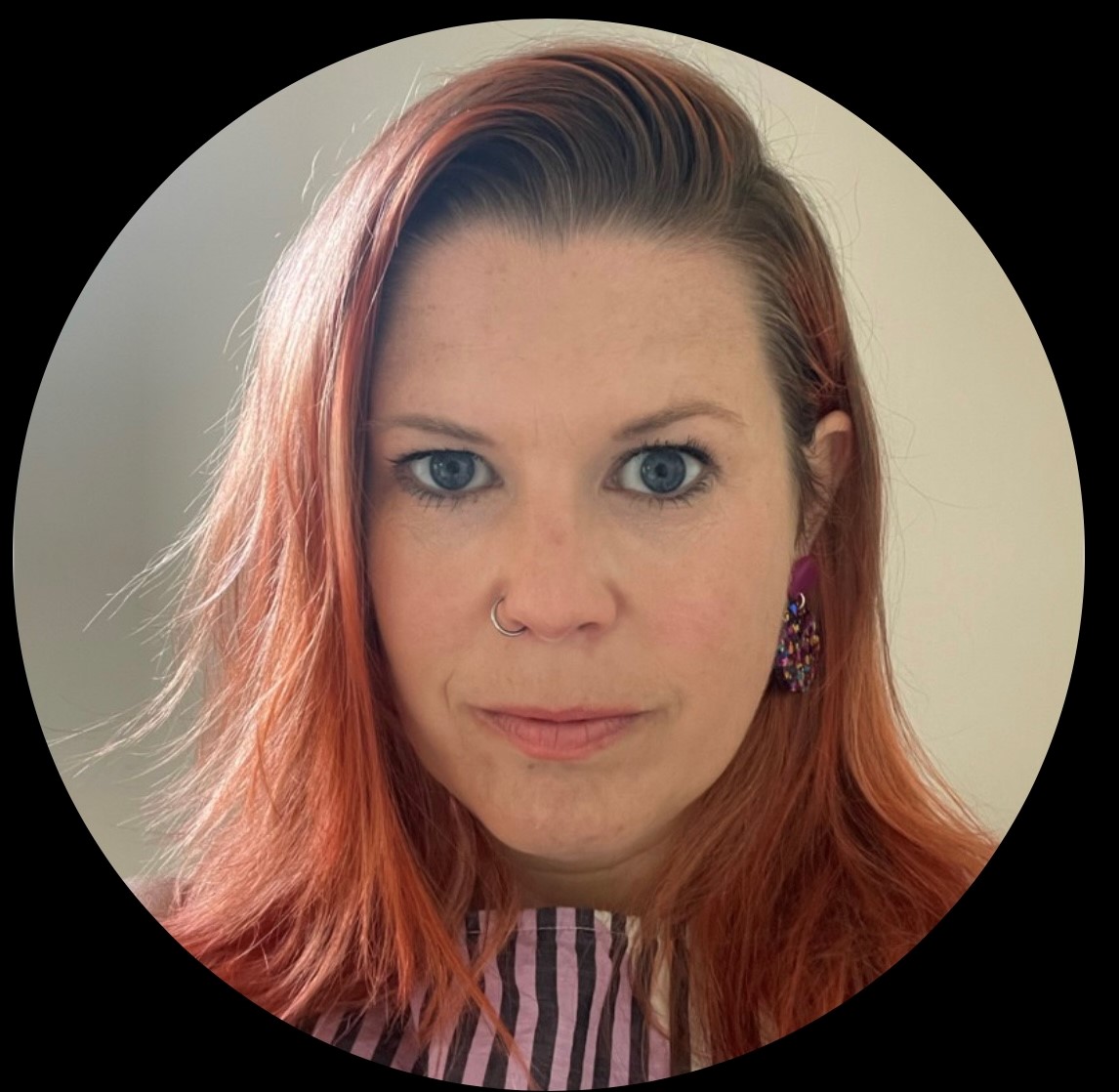
Dr. Alice Morgan, Coordinator of Clinical Psychology at the Royal Children's Hospital, Melbourne, Australia, and research team Rachel Lassman (Baby Ubuntu) and Michael Gumisiriza (Cohere) are proud to be the recipients of the 2023 ACBS Foundation Grant - Aaron S. Luoma Fund for Global Equity to complete a research project: Helping caregivers create Mighty Children: A Caregiver Support program for Children living with disability in a refugee camp.
The Mighty Children program was a 9 week peer support and education program for caregivers of children living with disability. Based off the Getting to Know Cerebral Palsy program, and with the addition of ACT techniques targeting caregiver well-being and resilience through mindfulness, gratitude and acceptance, Mighty Children had previously been found feasible and acceptable in a humanitarian setting in Afghanistan. This Foundation Grant them to train expert-parents and community workers in a Refugee-led Organsiation to run the intervention in their community. They then trialed the feasibility and acceptability of the intervention for a refugee setting in Uganda for caretakers of children living with a disability aged 2-10 years old. It is hoped that with further investment this program, it may be rolled out in larger trials in across the refugee camps in Uganda and potentially other countries.
Grant Report - December 2024
The Mighty Children program has created lasting positive change in five key areas:
1. Empowerment and well-being of Caregivers: Perhaps the key change from the Mighty Children groups was a change in the self-efficacy, hope and empowerment of the caregivers participating in the group. A sense of belonging and connection fostered by meeting a group of women living in a similar context was enhanced through the ACT-based exercises incorporated into the manual. The group was observed to reduce caregiver isolation and stress and foster emotional resilience.
Caregivers reported in focus groups conducted in Oct 2024 that they better understood their child, that they were able to act as advocates in their communities for their children and that they were able to reduce stigma amongst family and community members. The “Pause and Tune In” (ACT-based strategies) combined with positive parenting strategies allowed them to build reflective capacity and patience, enabling caregivers to meet their children’s needs physically and emotionally, which led to more empathetic and supportive parenting.
“The activities (pause and reflect) help me to relax and refocus, which I rarely get time to do” (Caregiver, focus group)
“I have learned to be more mindful of my emotions and how they affect my caregiving; the techniques are simple and easy to apply during stressful moments” (Caregiver, focus group)
“I used to think that my child was bewitched which made me hesitant to seek for medical attention... not until I joined the group and we were taught about disability, causes, clinical symptoms, support and management” (Caregiver, focus group)
2. Enhanced Development for Children with Disabilities: A key component of the Mighty Children program involved teaching practical skills that aided the development of communication, motor skills and other developmental tasks. Facilitators also work to connect children to essential resources, where available, such as special education and therapies to promote their growth and development. Caregivers reported that working with their children in these ways allowed their children to reach significant developmental milestones and attend school (where few had previously attended), despite impairments. Families reported improvements in eating, walking, standing and talking, as well as general improvements in inclusion.
The combination of practical skills, advocacy and caregiver empowerment allowed children to thrive in a newly supported context, which had flow-on effects to family functioning and well-being in many instances. Children were observed to be included more readily in family and community events, and an increase in school attendance was observed in nearly all participants.
“I thought that epilepsy is contagious, and I never allowed my daughter to share a bed, food and drinks, clothes and play materials with her siblings which was causing a lot of trauma in her life and she was always in isolation. When we learnt on how to care for disabled children, I changed my mindset, and the entire family too, and are living happily” (Caregiver, focus group)
3. Positive Change in Community Attitudes: Although advocacy was only a small component of the manualised program, the flow-on effect of education, knowledge, empowerment and support appeared to result in increased advocacy from caregivers within their community. The large reach of the program through the refugee camp has raised awareness in both participating families and their surrounding environment, which in turn has supported inclusion for children with disabilities.
“My husband divorced me because I produced a child with cerebral palsy which was considered a bad luck in their clan. I joined the mothers of CWDS and learnt how to do stretching exercises and my son learnt how to move with his legs, writing and is now at our nearby ECD and this brought back joy, and my husband returned home” (caregiver, focus group).
4. Long-Term Social and Economic Benefits: Longer term benefits are likely to be seen in the field of Inclusion for children with disability. Increased school attendance and community participation has already been observed, with this likely to result in their ability to contribute meaningfully to society in other areas. Similarly, caregivers are better equipped to meet their child’s needs and to offer responsive parenting, which may reduce healthcare costs through reduced disability.
Although not directly related to the ACBS grant, the add-on program that provides caregivers with opportunities to learn and participate in financial education and profit-generating activities may allow these families a step out of poverty.
“My child’s condition was an excuse for every problem I could face in my marriage and I hated her like nothing but I realized that it was not the case and I needed to love and care for her, after being trained in disability I developed that love and care for her which helped her to improve and life is moving on smoothly”
5. Impact on CBS and the research community: It is hoped that this program will contribute significantly to the CBS and ACT research base, particularly in the field of adapting ACT and CBS to low-resource humanitarian settings. This initial pilot program that examined adapting a previous ACT-based program for an East African refugee camp has suggested that this model is sustainable, feasible and scalable. It has also suggested that manualised programs conducted by minimally trained but uneducated (in ACT, CBS or mental health) facilitators is a workable model for future projects. This finding increases the reach of ACT and CBS into vulnerable and hard to reach populations such as refugee camps, conflict and other humanitarian spaces.
It is hoped that we will be able publish initial research related to the methodology of the Mighty Children program, and the outcomes of the Focus Group. It is also hoped that based on these results, we will be able to apply for a larger grant to scale this program across refugee camps in Uganda.
In related research, an article was recently published on the original iteration of this project in the British Journal of Global Health: Evans N, Ahmadi N, Morgan A, et al. Supporting caregivers of children living with disability in a humanitarian context: realist-informed evaluation of the ‘Mighty Children’ programme in Afghanistan. BMJ Glob Health 2024;9:e012989. doi:10.1136/ bmjgh-2023-012989
This article is the first iteration of what is hoped to be many published works around the Mighty Children program, promoting the use of ACT with caregivers in fragile settings. It is hoped that ongoing published work and promotion will allow for larger grants to run effectiveness trials of this program.
We thank you for your support of this grant – particularly recognising that you gave us this opportunity despite not being the original winner of the ACBS Foundation grant. This small amount of money has allowed us to do truly life-changing work in Rwamwanja refugee camp with an inspiring refugee-led organisation. We are excited about the next phase of evaluation and scaleup.
We have included some photos from the groups for you!
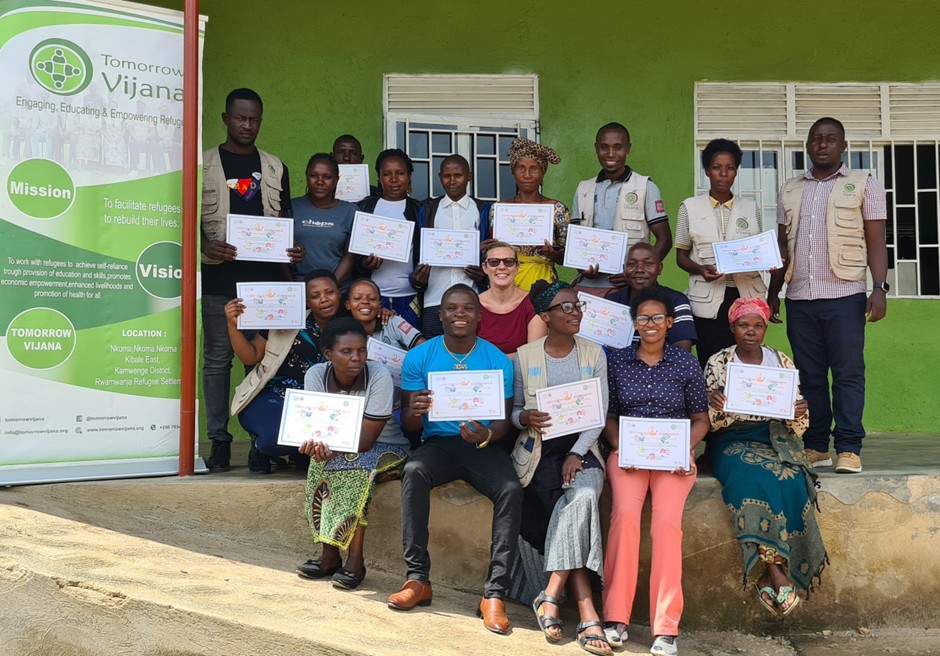
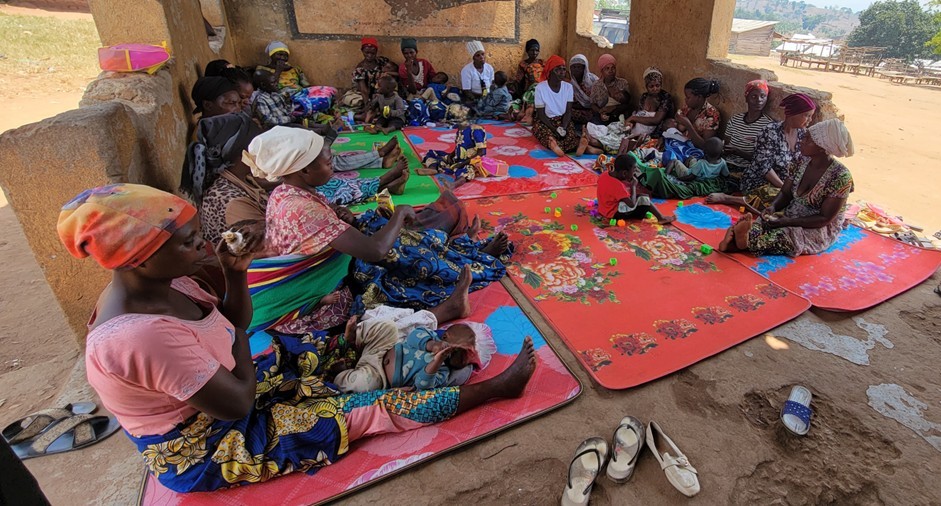


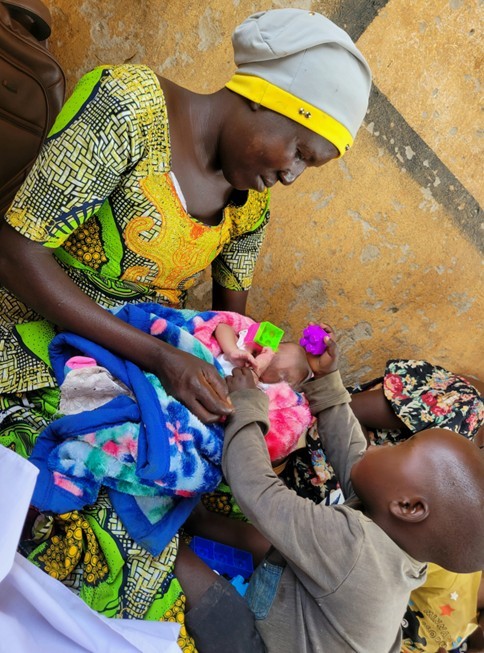
(Photos posted with permission.)
2025 ACBS Foundation Grant - Aaron S. Luoma Fund for Global Equity
2025 ACBS Foundation Grant - Aaron S. Luoma Fund for Global Equity2025 Grant Recipient
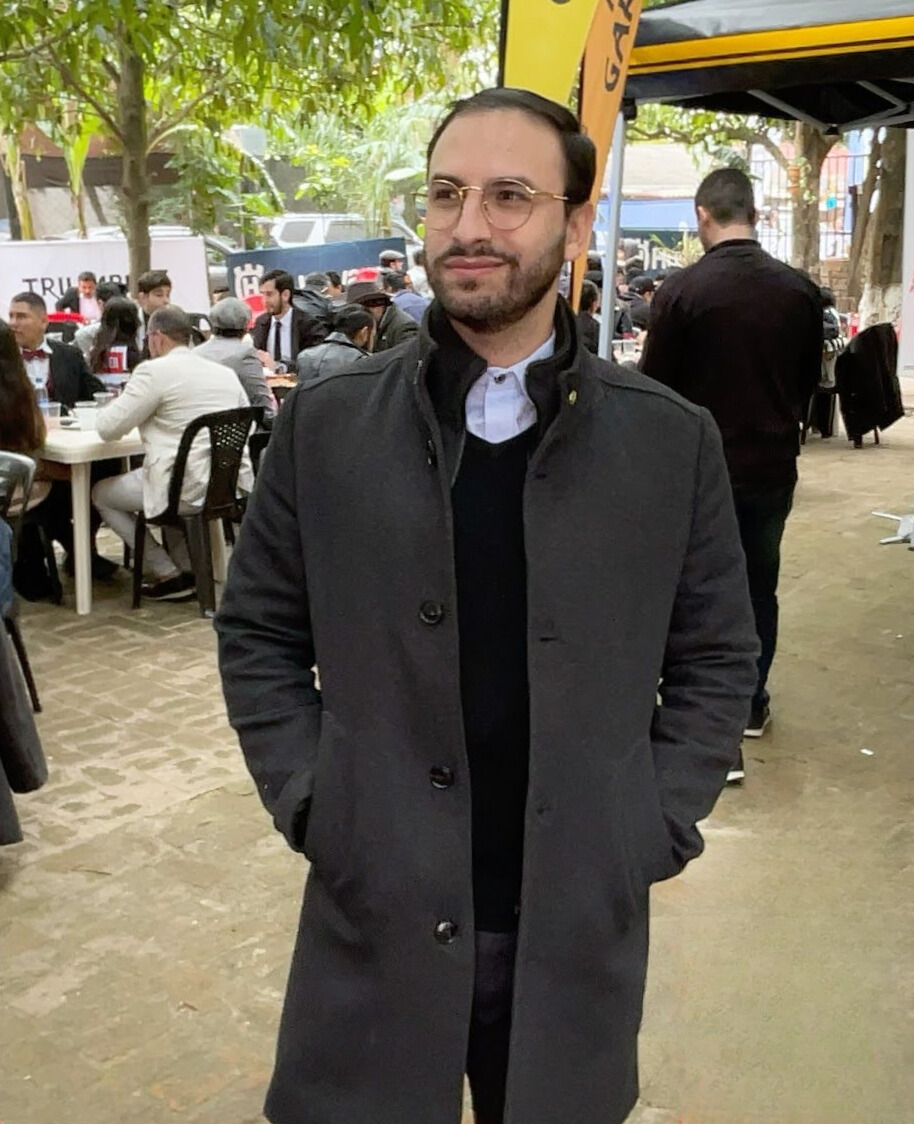
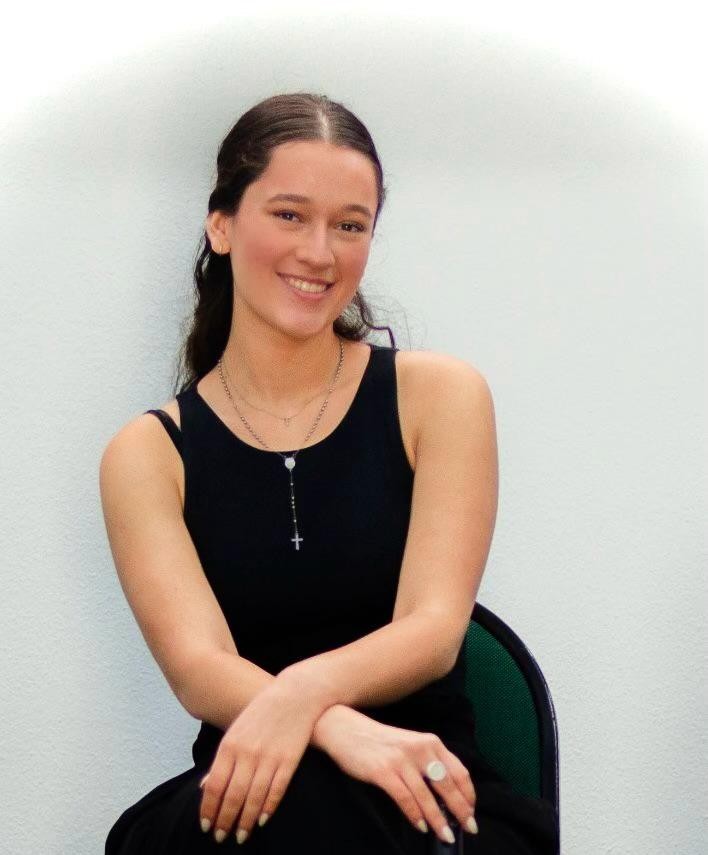
Nicolas Arancibia Levit, MSc, Coordinator of the Psychological Research and Advice Centre and his co-investigator; Maria Trinidad Terceros Pavisich, are proud to be the recipients of the 2025 ACBS Foundation Grant - Aaron S. Luoma Fund for Global Equity to complete a research project for Body Image Acceptance and Self-Efficacy: Predicting Exercise and Healthy Eating Behaviors in Young Adults.
Many young adults struggle with body image concerns, which can impact their confidence in maintaining healthy behaviors like regular exercise and balanced eating. This study aims to explore how accepting one’s body—without letting negative thoughts interfere—relates to confidence in staying physically active and making healthy food choices. Self-efficacy, or the belief in one’s ability to succeed in a specific task, plays a key role in forming healthy habits. People who feel confident in their ability to exercise or eat well are more likely to engage in these behaviors. However, negative body image can lower this confidence, making it harder to maintain a healthy lifestyle. By examining how body image acceptance relates to self-efficacy in exercise and eating habits, this research seeks to fill a gap in the literature and provide insights that could support interventions promoting well-being.
This study is based on principles from Acceptance and Commitment Therapy (ACT), which emphasizes psychological flexibility—the ability to accept one’s thoughts and emotions without letting them dictate behavior. ACT suggests that accepting body-related thoughts can reduce distress and improve overall health behaviors. By using validated questionnaires to assess body image acceptance and self-efficacy, this study will analyze responses from young adults aged 18 to 30 in Santa Cruz de la Sierra.
The findings could help shape future interventions that promote self-acceptance as a way to improve self-efficacy for exercise and healthy eating. These insights may contribute to the development of programs that reduce the risk of eating disorders and maladaptive health behaviors. Ultimately, this project aligns with Contextual Behavioral Science by offering a framework for enhancing well-being through psychological flexibility, helping individuals develop healthier relationships with their bodies and fostering long-term positive behavior change.
Founding Donors
Founding DonorsYour help and support mean so much! Your generous donations will make it possible for us to help the world through contextual science and to explore areas for future development. The ACBS Foundation's first open call for grant proposals was announced January, 2021. More information about the Foundation Grant can be found here.
We would especially like to thank Jason Luoma and Jenna LeJeune for their great generosity which led to the creation of the Aaron S. Luoma Fund for Global Equity.
(Updates regarding the Foundation’s progress can be found here. Wondering how you can help? Please consider donating to the Foundation here.)
Thank you all!
The ACBS Foundation Board
ACBS Foundation - Founding Donors
Niloofar Afari
Konrad Ambroziak
Jaqueline A-Tjack
Katie Barrett
Danny Barron
Andrea Bassanini
Mathew Boone
Michael Bordieri
James Braggs
Paul Buckley
Richard Coates
Contextual Change LLC
Shawn Costello
Susan Chapel
Lisa Coyne
Shane Curley
Doug Detrick
Frederick Dionne
Michael Dougher
Larry Dumka
Jack Engels
Michael Femenella
Julia Fiebig
Lauren Franke
Mathias Funke
Andreas Galipo
Andrew Gloster
Ciara Graydon
Ashley Greenwell
Jennifer Gregg
Julie Hamilton
Rob Handelman
Lindsay Hardie
Louise Hayes
Steven C. Hayes
Fiona Healy O’Neill
Nicholas Hooper
Cynthia J’Anthony
Mark Kaufman
Lydia Kaus
Janice Keeman
Kate Kellum
Anastasia Keller-Collins
Valerie Kiel
Jennifer Krafft
Aline Kruit
Cheryl Lamin
Michelle Landis
Louis Lasprugato
Jenna LeJeune
John Lestino
Miguel Lewis
Dario Lipovac
Carmen Luciano
Jason Luoma
John & Gracia Luoma
Daniel Lyons
Michael Maher
Michelle Maidenberg
María Cecilia Maiojas Schneider
Donald Marks
John Matthews
Jan Martz
Michael May
Agnieszka Mazurczak
Louise McHugh
Katherine McInnis
Paul Miller
Juan Montes
Louis Morales Knight
Miranda Morris
Amanda Munoz-Martinez
Sean O’Dell
IJ Oksas
Gwen Pearl
Tonya Pan-Weisz
Janiece Pompa
Rob Purssey
Emily Rodrigues
Neeltje Rosmalen
Venancio Ruiz-González
Joey Salvatore
Emily Sandoz
Arancha Santos de la Rosa
Mary Sawyer
Lucas André Schuster de Souza
Rachel Swartz
Joy Sereda
Shoshana Shea
Louise Shepherd
Richard Shook
Laura Silberstein-Tirch
Patricia Simons
Patrick Smith
Stephanie Sokolosky
Jill Stoddard
Thomas Szabo
Marcel Tassara
Christein Terry
The Center for CFT
Dennis Tirch
Kuohsi Tsao
Renae Visscher
Michael Vurek
Robyn Walser
Steve Ward
Jonathan Weinstein
David Sloan Wilson
Joann Wright
Manabu Yoshimoto
Robert Zettle
Gift Acceptance Policy
Gift Acceptance PolicyAssociation for Contextual Behavioral Science Foundation - Gift Acceptance Policy

Mission Statement
The ACBS Foundation provides financial support for activities of training, education, research, dissemination of information, and outreach that minimize human suffering and increase well-being.
Vision Statement
The ACBS Foundation harnesses scientific discoveries in order to alleviate human suffering and promote well-being for all.
Values Statement
The Foundation supports:
• Charity
• Collegiality
• Equality
• Equity
• Generosity
• Human development
• Mutually supportive practice
• Non-discrimination
• Openness
• Self-critical practice
Purpose of Gift Acceptance Policy
The Foundation is incorporated in Nevada, United States of America. Its federal tax identification number is 83-2620099.
The purpose of the Foundation’s Gift Acceptance Policy (the “Policy”) is to govern the acceptance of gifts and to provide guidance to donors in completing gifts.
The scope of this Policy is limited to acceptance or non-acceptance of proposed gifts; it is not intended to cover disposition of property owned by the Foundation.
Gift Acceptance Policy for Gifts from non-US Donors
The Foundation will accept, or consider for acceptance, contributions of cash from donors globally to varying degrees. Regardless of the donor’s country of residence acceptance of a gift of any kind must comply with the policies and procedures established by the Foundation Board of Directors, including but not limited to those outlined in this gift acceptance policy as amended periodically. The acceptance of a gift of any kind must comply with all local laws, and transfer of the assets to the Foundation cannot violate any U.S. or local laws.
All monetary amounts in this Policy are in U.S. dollars and all references to “the IRS” are to the United States Internal Revenue Service.
Use of Legal Counsel
The Foundation does not provide legal, tax, or financial advice. It is the donor’s responsibility to discuss all charitable gift planning decisions with his or her legal, financial, or tax advisor before entering into any commitment to make a gift to the Foundation.
The Foundation will seek the advice of legal counsel in matters relating to acceptance of certain gifts, when appropriate.
Gift Definition
A gift is a voluntary transfer of assets from a person or an organization to the Foundation. The Foundation may accept or decline any gift.
The following criteria generally identify a gift:
• A gift is motivated by charitable intent;
• Gifts are irrevocable transfers of assets;
• Gifts are not generally subject to an exchange of consideration or other contractual duties between the foundation and the donor, although objectives may be stated and funds may be restricted to a specific purpose;
• Donors are not provided financial accountings; and
• A gift is not completed until it has been accepted by the Foundation. The Foundation reserves the right to decline any gift.
Types of Acceptable Gifts
An outright gift involves the donor’s voluntary and intentional transfer of money or assets to the Foundation without expectation of receiving a benefit related to the value of the transfer. Although the donor may request restrictions on the use of the gift, the donor may not retain control over the money or property transferred to the Foundation.
The Foundation accepts gifts in the form of cash, check, money order, and credit cards. The Foundation is pleased to consider and discuss other types of gifts (e.g., securities or gifts in the form of real estate, personal property, or non-public or restricted securities) on a case by case basis.
Cash, Checks, and Money Order — Cash, checks, and money orders may be accepted regardless of the amount. The value of any cash, check, or money order is its face value. Checks and Money Orders must be made payable to “Association for Contextual Behavioral Science Foundation”.
Electronic Funds Transfers — Instructions for electronic funds transfers are available upon request.
Credit Card Contributions — Funds may be transferred to the Foundation via credit card. Secure credit card contributions may be made at https://contextualscience.org/acbs_foundation. There is no minimum donation requirement for a credit card transaction.
Gift Designation
To provide the Foundation with maximum flexibility in the pursuit of its mission, donors are encouraged to make unrestricted gifts to the Foundation. All receipts from unrestricted donations will become part of the Foundation General Fund to support activities related to its mission and to support an endowment (invested funds to provide additional funds for future allocation).
Restricted Gifts – Restricted donations of large gifts specified for a particular purpose will be considered on a case by case basis in discussion with the Foundation President or his or her designee and in concurrence with the Foundation Board. All restricted gift arrangements shall be memorialized in a written document describing the restrictions on the gift by the donor and other obligations that may be undertaken by the Foundation with respect to the gift. Gift agreements may be reviewed and approved by the Foundation’s legal counsel, if appropriate, prior to signature by donor and Foundation representative.
Variance Power – The Foundation reserves the right to broaden or alter the purpose of a restricted gift should it be determined in the future that the original purpose of the gift no longer is in the best interest of the Foundation or fits with the priorities or mission of the Foundation.
Unacceptable Gifts
The Foundation will not accept any gifts that:
• Contain a condition that is inconsistent with the mission of the Foundation as determined by the Foundation Board;
• Contain a condition that the proceeds will be spent by the Foundation for the personal benefit of a named individual or individuals;
• Require the Foundation to employ a specified person now or at a future date;
• Inhibit the Foundation from seeking gifts from other donors;
• Expose the Foundation to adverse publicity, litigation, or other liabilities; or
• Require undue expenditures, or involve the Foundation in unexpected responsibilities because of their source, conditions, or purpose.
Gift Acknowledgment
The Foundation will acknowledge the receipt of all gifts in writing and in a manner which satisfies the IRS's substantiation requirements set forth in IRC Section 170(f) for the deduction of charitable gifts by individual donors. Aside from acknowledgement of receipt of gifts, the Foundation is not responsible for maintaining records for proof of charitable contributions.
The Foundation Board may establish criteria for the recognition and honoring of a donor with certain honors or benefits based on various giving levels achieved by a donor and the type of gift. These honors or benefits may include the listing of the donor’s name on a roll or plaque of significant donors or the opportunity to receive invitations to donor recognition events. Donors will be requested to indicate whether they would prefer to be recognized or to remain anonymous as permitted by legal requirements.
Confidentiality - Information concerning all transactions between a donor and the Foundation will be held by the Foundation in strict confidence and may be publicly disclosed only with the permission of the donor, where confidentiality would not violate any legal requirements for disclosure.
Anonymity - The Foundation will respect the wishes of donors wishing to support the Foundation anonymously and will take reasonable steps to safeguard those donors’ identity where anonymity would not violate any legal requirements for disclosure.
Additional Stipulations
The Foundation is committed to the highest ethical standards. The Foundation Board members and staff at all levels of the organization will handle information about and from donors and donations with respect and privacy.
Acceptance and documentation of gifts must be under the supervision of the ACBS Foundation Executive Director with concurrence from the Foundation Board, in order to maximize the value of those gifts to the Foundation, while minimizing costs and risks to the Foundation associated with those gifts.
The following persons are authorized to sign restricted gift agreements on behalf of the Foundation: President, Vice President, and Treasurer.
Finder’s fees will not be paid to trust officers or attorneys, etc., for directing contributions to the Foundation.
Expenses associated with a donor’s gift shall be borne by the donor.
Policy Amendment and Review
Responsibility for review of and recommended amendments to the Policy shall be that of the Foundation Board. The Foundation Board of Directors shall periodically (but no less frequently than every five years) review these policies to ensure that they continue to accurately describe the policies of the Foundation with respect to acceptance of gifts, and shall propose for adoption those revisions that are determined to be necessary or appropriate in order for the statement of Policy to accurately reflect the policies of the Foundation. These policies shall also be reviewed upon the enactment or promulgation of legislation or regulatory rules affecting fundraising and gift acceptance by the Foundation, to assure continued compliance by the Foundation with the legislation and rules. To amend the Policy, a written amendment shall be prepared and submitted to the Board for review and approval.
Policy Effective Date
The Gift Acceptance Policy was adopted on May 17, 2019, and became effective on that date.
Robert (Bob) J. Kohlenberg Research Fund
Robert (Bob) J. Kohlenberg Research Fund.jpg)
“My mission is to engage as fully and deeply as I can with the world—including interpersonal, cultural and physical realms. This includes: 1) striving to love ever more deeply and increasing the scope and intensity of my attachment to, caring for and benefiting others; 2) increasing my concern and involvement with solving sociopolitical problems; 3) passionately playing with ideas that foster creativity and intellectually challenging myself and stimulating others to do the same: and 4) learning about, deepening my understanding, and having hands-on involvement and connection to the physical and technological features of the world in which I live.” Robert J. Kohlenberg (1937-2021)
Dr. Kohlenberg was a dedicated member of ACBS from its inception. He co-conceptualized Functional Analytic Psychotherapy (FAP) in the 1980s, a “contextual, behavioral, relational approach to psychotherapy in which therapists focus on what happens in session between the client and therapist to shape the interpersonal behaviors, emotional awareness, and self-expression necessary for clients to create and maintain close relationships and to live meaningful liveslives” (Kohlenberg & Tsai, 1991; Tsai et al., 2009; Tsai, Callaghan & Kohlenberg, 2013).” This endowed fund honors the legacy of Dr. Kohlenberg’s pioneering work by continuing this spirit of inquiry.
The Robert J. Kohlenberg Research Award will support graduate student, early, or experienced career research focused on advancing knowledge and expertise in Functional Analytic Psychotherapy or its dissemination to the general public via the Awareness, Courage & Love Global Project.
Two awards are available annually to qualifying applications. Priority for one award each year is given to high quality student and early career research applications.
(For the Kohlenberg Award, the ACBS Foundation defines “graduate student and early career” for the purpose of this grant as a post-baccalaureate student seeking a degree in a field relevant to the purposes of the association, or an early career researcher as a person who completed their terminal degree within the past 7 years (or 10 years if you took time off for personal reasons such as family). An early career researcher includes individuals in current postdoctoral and faculty positions, as well as those in other employment positions.)
To learn more about Bob Kohlenberg’s life and legacy, please read the beautiful obituary published on Recompose.
To contribute to the Robert J. Kohlenberg Fund, click the donate button below:
2023 Robert J. Kohlenberg Research Award Grant
2023 Robert J. Kohlenberg Research Award Grant2023 ACBS Foundation Robert J. Kohlenberg Research Award Grant Recipient: Sara Robayo
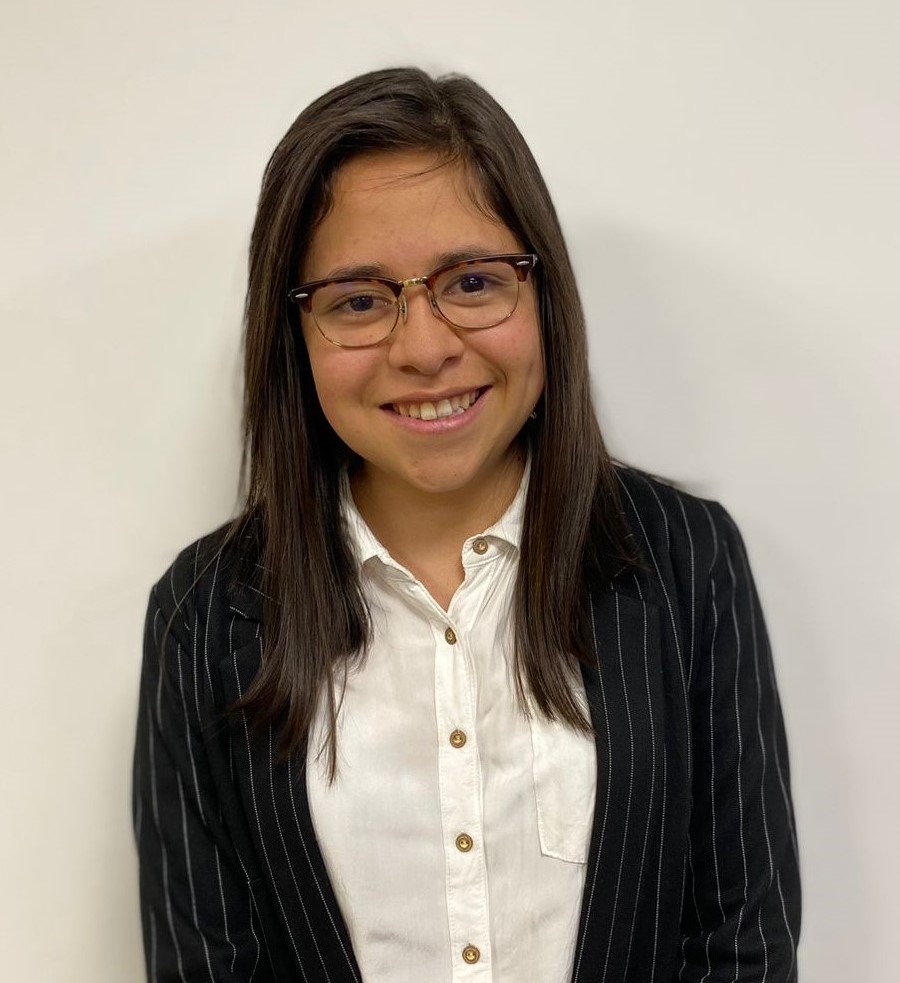
Sara Robayo, MS in Clinical Psychology at the Pontificia Universidad Javeriana, Bogota, Colombia, and research team Yors Garcia (Pontificia Universidad Javeriana), Amanda Muñoz-Martinez (Universidad de los Andes), and Matthew Skinta (Roosevelt University) are proud to be the recipients of the 2023 ACBS Robert J. Kohlenberg Research Grant to complete a research project on evaluating the Effect of Functional Analytic Psychotherapy in Intimacy and Minority Stress in Trans and Gender non-conforming people.
The main goal of this research project is using functional analytic psychotherapy (FAP) to improve intimacy repertories and stress minority levels in trans and gender non-conforming (TGNC) people living in Colombia (South America). In this country TGNC individuals are at greater risk of severe mental issues compared to cisgender counterpart, not to mention the limited access they have to evidence-based interventions that may help them with their specific needs. One of the most common difficulties reported by these individuals and observed in psychotherapeutic sessions is the lack of intimacy repertoires. These repertoires are important to develop close and significant relationships with significant ones. In addition, TGNC people have difficulties coping with minority stress, which consist of high levels of stress faced by members of stigmatized minority groups. Therefore, this research grant will be used to evaluate the impact of FAP in developing intimacy repertoires in TGNC people as well as teaching them alternative repertoires to effectively face minority stressors. We hope this study opens a new line of research and moves forward the legacy left by Robert Kohlenberg.
Final Report:
Outputs and Deliverables:
Based on the results of this research project, two articles were written.
The first article examines the therapeutic interaction and participants’ intimacy in-session behaviors and the pre-, post-, and follow-up measures of intimacy repertoires out-of-session, minority stress levels and interpersonal difficulties reported by these TGNC participants. This article is currently under development.
The second article entitled “Using Functional Analytic Psychotherapy to Address Interpersonal Difficulties with a Neurodiverse, Non-Binary Client” examined the implementation of Functional Analytic Psychotherapy, to address relational difficulties in a 33-year-old, non-binary autistic individual with interpersonal difficulties.
This paper was submitted to Clinical Case Studies (CCS) https://journals.sagepub.com/home/ccs on July 26, 2025 (Appendix B)
OSF. https://osf.io/7twrm/?view_only=a93917905cbf4f5696fb5de761ca9efa
Impact and benefits to the researchers, CBS, and society at large:
This project provides empirical evidence of the utility of FAP in addressing intimacy and minority stress in TGNC individuals, —population that face ongoing prejudice across multiple contexts and have limited access to empirically supported, affirmative psychological interventions tailored to their specific needs.
The first article illustrates the importance of integrating FAP principles with a culturally humble and affirmative framework to foster TGNC clients’ in- and out-of-session intimacy-seeking behaviors, while addressing behaviors that block interpersonal intimacy. Findings regarding therapeutic interaction and out-of-session intimacy repertoires shed light regarding FAP’ change mechanisms in minoritized populations, as well as idiographic aspects -such as intersecting identities- that may influence the generalization of their therapeutic gains.
The second study highlights FAP’s potential as an affirming and effective intervention for individuals navigating intersectional identities, particularly neuro- and gender diverse clients by providing a supportive space to tackle relational challenges and compounded social stressors. These findings emphasize the flexibility of FAP's principles in adjusting the therapeutic objectives by considering the client’s developmental and relational history. This article also offers recommendations for clinical practice aimed at promoting contextual interpretation of interfering behaviors exhibited by individuals from minoritized populations in the development of a therapeutic relationship— behaviors shaped by ongoing interaction with a context that continuously discriminates against them. Likewise, it encourages clinicians to make use of therapeutic rules to examine their own biases and how these may impact their work with these marginalized populations.
Both studies underscore the importance of using therapeutic interventions such as FAP in addressing TGNC clients’ interpersonal difficulties and fostering alternative interpersonal behaviors that enhance their ability to build high-quality relationships -a protective factor for their physical and mental health. Both studies also pose future research directions in addressing aspects that may influence generalization of their therapeutic gains such as clients’ intersecting identities.
Click here to read more about the ACBS Foundation's Robert J. Kohlenberg Research Fund.
2024 Robert J. Kohlenberg Research Award Grant
2024 Robert J. Kohlenberg Research Award Grant2024 Grant Recipient:

Serena Wong, PhD, Adjunct Faculty, Departments of Psychology and Psychiatry, University of Western Ontario (Canada) and her co-investigators; Frankie Lui, Lisa Van Bussel and Lynette Markoff, are proud to be the recipients of the 2024 ACBS Robert J. Kohlenberg Research Grant to complete a research project on Targeting Loneliness: A Novel Application of Awareness, Courage, and Love Groups for Geriatric Psychiatry Patients.
Loneliness is a key predictor of death, dementia, physical decline, and poorer mental health in older adults. Geriatric psychiatry patients are at greater risk for the experience of loneliness. Reviews of loneliness interventions say that solutions need to have a clear theoretical basis and more randomized trials are required. Furthermore, researchers have stressed the importance of “a rich and forgiving social environment” for lonely individuals to address unhelpful social cognitions. Interventions rooted in behavior change theory also seem most promising.
Developed by Dr. Mavis Tsai, Awareness, Courage, and Love Groups (ACL) represent a powerful, evidence-based approach to alleviate loneliness and enhance social connection. ACL sprung from functional analytic psychotherapy, which is a transdiagnostic approach grounded in functional contextualism and radical behaviorism, wherein the mechanism of change is therapeutic social reinforcement. Put simply, these groups are geared to alleviate suffering in a growing population of older adults with mental health diagnoses.
We recently adapted ACL groups for geriatric psychiatry patients, with positive results based on informal patient feedback and staff observations. Our adaptations include the use of visual cues, aging-related themes, listening prompts, shorter meditations, and a simplified discussion process. Our interdisciplinary team comprises psychology, social work, nursing, and psychiatry. Our goals are to examine feasibility, acceptability, and efficacy in both outpatient and inpatient arms of this study, using randomized waitlist and active control group methodologies. In other words, we want to see if ACL “works” for a new geriatric population. In addition to tracking patient retention, which has so far been at 100%, we are collecting session feedback and assessing program satisfaction both qualitatively and quantitatively. Outcomes include life satisfaction, loneliness, social closeness, relational health, and the experience of sacred moments in group. If these groups work, we can support dissemination and cultivate communities of connection worldwide for lonely seniors.
2025 Robert J. Kohlenberg Research Award Grant
2025 Robert J. Kohlenberg Research Award Grant2025 Grant Recipients:
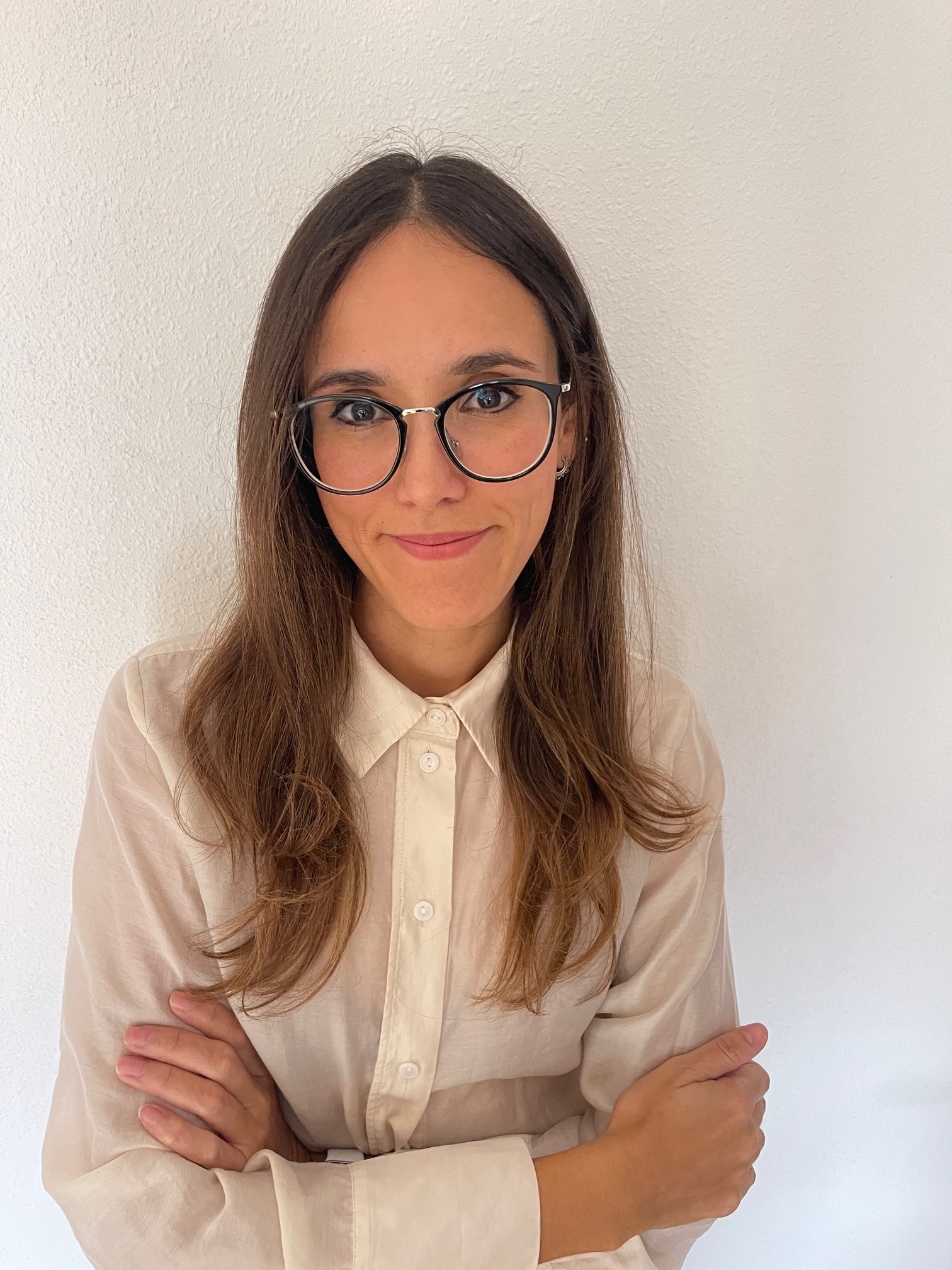
Gladis-Lee Pereira, Ph.D., Associate Professor at Universidad Europea de Madrid and her co-investigators; Tien Kuei (Power to Live Foundation) and Natalia Andrés-López (Universidad Autónoma de Madrid) are proud to be the recipients of the 2025 ACBS Robert J. Kohlenberg Research Grant to complete a research project: Mapping In-Session Change in Functional Analytic Psychotherapy from An Idiographic Molar Approach.
Functional Analytic Psychotherapy (FAP) is a therapeutic approach that emphasizes in-session interactions as the key factor driving meaningful change in clients' lives. It is a type of therapy that focuses on explaining why people change rather than merely analyzing if they change. In this sense, research that connects specific in-session interactions with clinical improvement, while preserving the unique role of each therapeutic dyad, is one of FAP’s most important tasks and, perhaps, one of its greatest methodological challenges.
Therefore, this study aims to expand our understanding of the specific behaviors exhibited by psychotherapists that are associated with clinical change, seeking to use a methodology that better fits the nature of psychotherapy. We believe that by focusing on the therapeutic interaction during clinical sessions, while capturing the uniqueness of each case, this project will contribute to improving therapeutic effectiveness and refining training methodologies for clinicians practicing FAP. This, in turn, has the potential to inform future research and applications within Contextual Behavioral Science and ultimately alleviate human suffering.
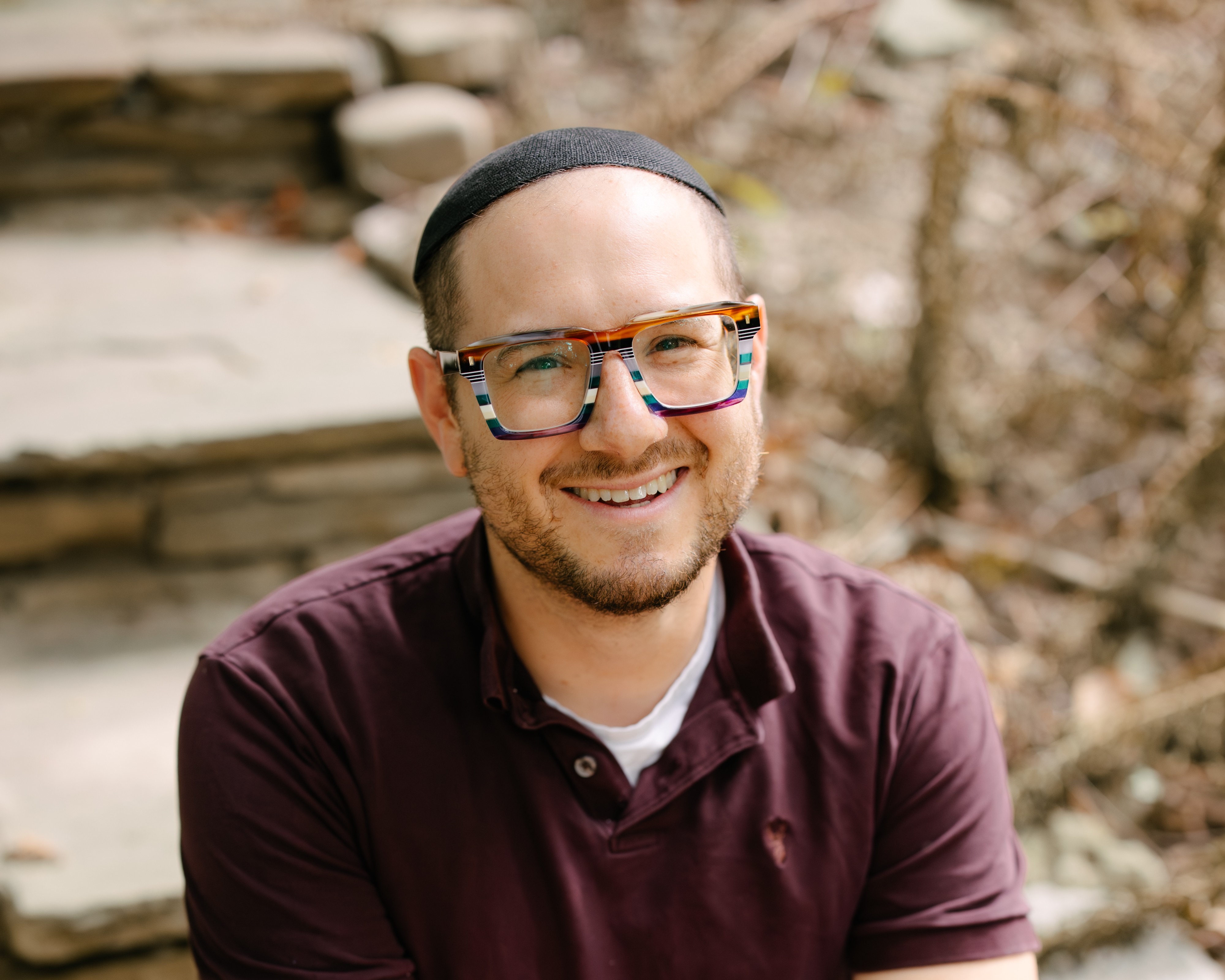
Rabbi Aaron D. Cherniak (Hebrew University of Jerusalem) and his co-investigator; Dr. Max Wolff (Central Institute of Mental Health, Mannheim) are proud to be the recipients of the 2025 ACBS Robert J. Kohlenberg Research Grant to complete a research project: Psychedelic Psychotherapy Through a Functional Analytic Lens: Relationship as a Meta-Mechanism of Change.
Psychedelic-assisted psychotherapy has shown potential to treat depression, trauma, and other mental health difficulties. Yet, we still know relatively little about how these therapies work. Recent research has identified several general mechanisms of psychedelic-related change that may drive improvement in psychotherapy broadly. However, these processes may depend on relational factors and how individuals navigate psychedelics’ effects.
Functional Analytic Psychotherapy (FAP) emphasizes the therapeutic relationship as the most powerful engine of change. FAP views the therapeutic bond not only as a source of support, but also as the context in which new patterns of relating can be learned and reinforced. This project applies a FAP-informed lens to psychedelic psychotherapy by exploring whether relational processes can organize and amplify other change processes identified by decades of integrative psychotherapy theory and research support, and in this context, more adaptive modes of experiencing psychedelics’ effects (acceptance-related vs. avoidance-related strategies).
To answer this, we will analyze data from a large international study that validated a novel measure of Grawe’s transtheoretical therapeutic change mechanisms, the first to assess clinically relevant relational behaviors and experiences during dosing sessions. We will explore mechanisms of therapeutic change at play in psychedelic experiences and their associations with a range of psychological flexibility, quality of therapeutic relationship, of individuals’ test whether the relationship mediates or moderates the link between life circumstances, change mechanisms, and a range of outcomes, such as aspects of mental health and well-being. This will clarify whether the therapeutic relationship functions as a superordinate factor that facilitates other mechanisms.
By illuminating how relational processes shape therapeutic effects, the project can help refine psychedelic therapy training, improve therapist guidance, and contribute to advancing knowledge in FAP. Ultimately, the findings may support the development of more effective and relationally attuned psychedelic therapies, reducing suffering and enhancing well-being across diverse populations.
